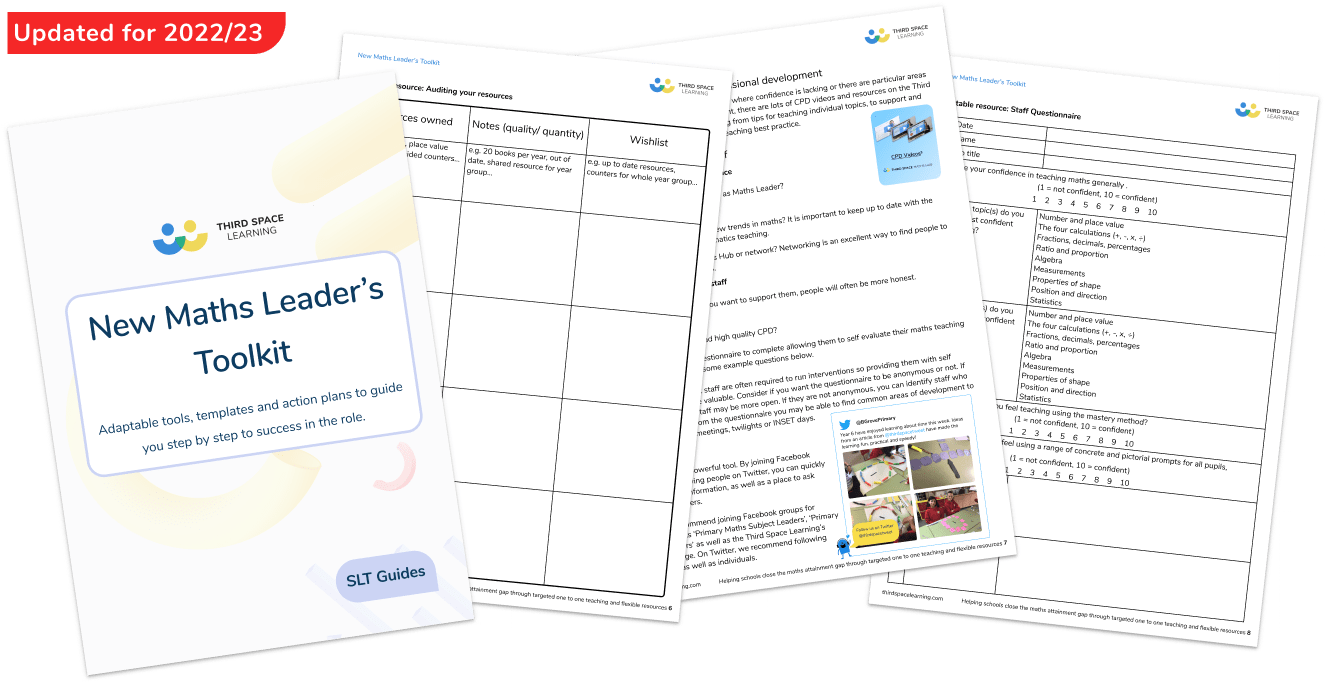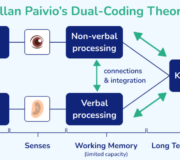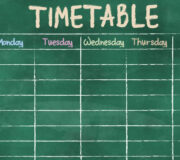Retrieval Practice: A Foolproof Method To Improve Student Retention and Recall
Retrieval practice is a teaching and learning strategy underpinned by cognitive science. It is a well-researched method that helps improve students’ knowledge retention of new information and recall of previously learned content.
This article offers practical advice for primary and secondary teachers to implement retrieval practice in class. While the advice applies to all subjects to help improve students’ learning, this article focuses on maths.
What is retrieval practice?
Retrieval practice involves actively recalling information from long-term memory to improve learning and recall.
This research-based approach is one of the most powerful learning strategies students can use to retain information. Practise daily with the whole class to familiarise students.
Retrieval practice is significantly more effective at improving students’ performance on assessments compared to more traditional methods of revision. For this reason, retrieval practice is known as the testing effect or test-enhanced learning.
Maths leader's toolkit
Adaptable tools, templates and action plans to guide you step by step to success in your maths leader role.
Download Free Now!The cognitive science
Cognitive scientists make the science of learning accessible to anyone interested in understanding how human memory works and why retrieval practice is an effective revision tool for all learners.
The multi-store model of memory proposes three distinct stores, each characterised by a unique duration and capacity.
Sensory memory allows people to process a vast amount of information simultaneously, but only for a split second. People subconsciously scan their environments for something noteworthy. When a piece of information captures attention, it enters into the short-term memory where it can stay for approximately 18-30 seconds without requiring much effort.
To retain information for longer, rehearse it in the short-term memory or encode it into the long-term memory.
Encoding information requires deliberate effort, often using:
- Repetition
- Elaborate processing
- Memory techniques
Once information enters the long-term memory, such as ‘the hypotenuse is the longest side of a right-angled triangle’, it can remain there indefinitely. The new challenge is to effortlessly recall information when needed. This is the purpose of retrieval practice.
Research suggests that long-term memory stores information in groups of related information, called schema. Each time a person retrieves information from a schema, the pathway to that piece of information and the related information becomes stronger. This means it is easier to retrieve information from that schema in the future.
Although the capacity and duration of the long-term memory is extensive, memories can decay over time if they are inactive for too long or the pathway to the memory can become lost.
It is normal for rapid decay to occur shortly after initial learning unless there is an opportunity to quickly recall learned information. The rapid decay decreases with each subsequent retrieval. This means the length of time between retrievals can increase without impacting the level of detail remembered.
9 Benefits of retrieval practice
When students have regular opportunities to actively retrieve prior learning, they perform significantly better on assessments compared to randomised control groups who have reread their notes or revised using their preferred method.
In addition to enhanced performance on assessments, retrieval practice also offers the following benefits:
1. Enhances memory recall
Students become more accurate at recalling information after multiple episodes of retrieval practice. Deliberate practice means they become faster at recalling the information and can remember it in more detail.
2. Improves understanding and comprehension
Retrieval practice helps students understand connected pathways in their long-term memory each time they recall information. This helps them understand how to learn maths draw parallels and make comparisons between similar topics.
3. Increases transfer of knowledge to new contexts
When recalling information becomes effortless, students find it easier to apply their knowledge to different contexts. This is because it frees up space in their working memory, allowing them to fully focus on applying their knowledge instead of focusing on recalling the information.
4. Long-term retention of information
Each retrieval attempt strengthens students’ memory and the information becomes more resistant to decay. Research has shown that retrieval practice improves performance on end-of-topic assessments and retention tests.
5. Improves problem-solving skills
This is particularly true if students interact with the material during retrieval practice. If retrieval focuses on recalling factual knowledge, students still experience some benefits when using their knowledge to solve problems.
6. Increases engagement and confidence
When students experience the benefits of retrieval practice, such as improved retention and academic success, they find the process more engaging and the success brings greater self-confidence.
7. Promotes a growth mindset
Students who engage in regular retrieval practice see a direct impact on their learning. This reinforces the notion that external factors students can control determine success rather than predetermined internal factors.
8. Improves metacognition
Self-assessment provides students with valuable feedback about their understanding, gaps in knowledge, and the effectiveness of their revision strategies. Informing students about how well they remember a topic helps students:
- Plan future learning
- Monitor and evaluate the effectiveness of their learning
9. Provides formative assessment
Retrieval practice is a valuable tool for teachers as well as students. It provides teachers with quick and regular feedback about their students’ understanding, allowing them to adapt their lessons to best meet the needs of their students.
Misconceptions surrounding retrieval practice
Students often believe retrieval practice is less effective than traditional revision methods like re-reading, concept mapping, repeated study, highlighting, and flashcards (Kapricke and Blunt, 2011). However, research shows it significantly improves test performance.
A second misconception is that retrieval should focus on recalling facts to build a foundation of knowledge before higher-order learning can occur.
This belief stems from Bloom’s taxonomy, which states that remembering facts is a prerequisite to applying, analysing, evaluating and creating.
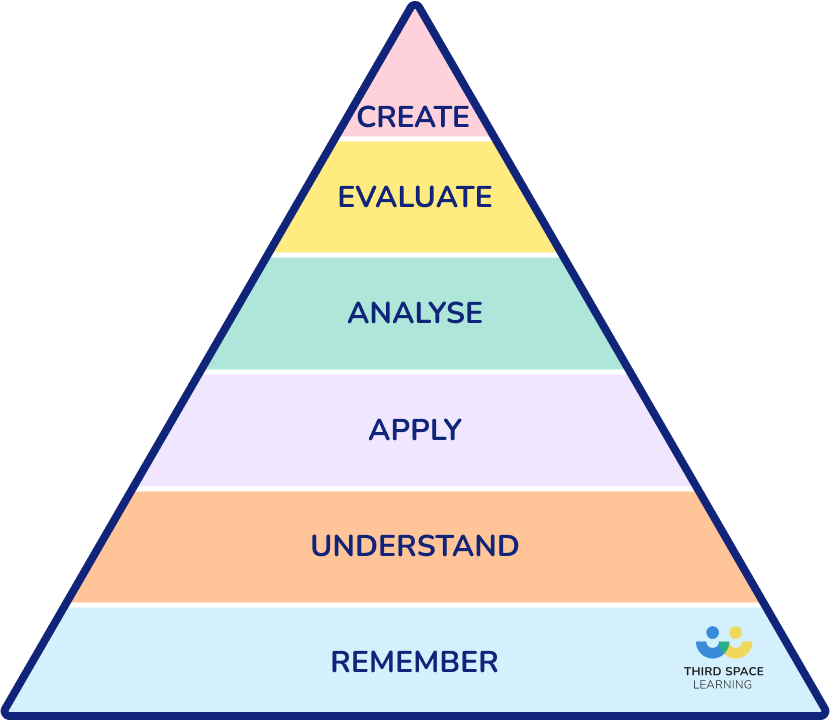
Research by Pooja Agarwal (2019) contradicted this assumption; the results showed that higher-order retrieval practice led students to perform significantly better on higher-order tests compared to factual retrieval practice.
The study provides further support that retrieval practice of any type is more effective at improving test performance compared to re-reading. Results show that retrieval practice is most effective if it incorporates the skills required for the final test.
How retrieval practice supports other evidence-based teaching strategies
When educators integrate retrieval practice with other teaching strategies, they help to improve student retention and understanding of content.
Here are 5 teaching strategies that support retrieval practice:
1. Metacognition
Metacognition is the ability to plan, monitor and evaluate your own learning. Retrieval practice is an excellent way for students to gain feedback about their current level of understanding.
They can use the results from retrieval practice to monitor or evaluate the effectiveness of their learning strategies and then make plans for future learning. For example, during a low-stakes quiz, a student may realise that they have forgotten how to change improper fractions into mixed numbers and make a plan to review their notes, talk to a peer, or arrange to see their teacher after the lesson.
2. Spacing
Spacing, or distributed practice, occurs when learning spreads out over time and across multiple study sessions. Research shows that spaced repetition successfully encodes more information into long-term memory than cramming.
Spacing is an integral part of retrieval practice and may explain why it is effective at improving learning. Students revisit new learning at increasingly longer intervals, which means that revision occurs over a prolonged period and cramming before an assessment becomes unnecessary.
3. Formative assessment
Formative assessment improves learning and provides teachers with feedback about their students’ understanding that they use to adapt their teaching.
Using retrieval practice to test students’ prior learning informs teachers about whether students are ready to move on or whether specific topics need to be revisited. Retrieval practice for formative assessment makes this learning strategy even more effective at improving learning.
4. Interleaving
Interleaving is the process of combining two or more topics together during a study session. This technique improves learning because it encourages students to compare and contrast the two topics and identify their distinguishing features.
The process of interleaving can be incorporated into retrieval practice by testing students on multiple topics within the same test. For example, types of numbers and probability: ‘what is the probability of getting a prime number on a single roll of a die?’
5. Desirable difficulties
Karpicke and Roediger (2007) proposed that retrieval practice is effective because it provides students with the desired level of difficulty to promote learning. Increasing the length of the intervals between retrieval attempts means that the difficulty of the task continues to require the optimal level of effort.
READ MORE: A Practical Guide To Rosenshine’s Principles
7 retrieval practice activities to use in the classroom
With a little extra planning, it’s possible to incorporate retrieval practice activities into every lesson. While it takes additional lesson time and preparation, regular retrieval practice saves time overall as it prevents the need to reteach or revise previous learning in discrete lessons.
Collaborative lesson planning with other teachers can help reduce the time it takes to incorporate retrieval practice.
The advice below will help teachers effectively add retrieval into every lesson.
1. Low-stakes quizzes
Low-stakes quizzes are a quick and effective way to incorporate retrieval practice into every lesson.
A low-stakes quiz tests prior knowledge without the pressure associated with more traditional tests. The low-stakes nature reduces the cognitive load of the task, allowing students’ attention to fully focus on the task instead of the possible consequences of a good or bad performance.
The most appropriate format will depend on the subject and year group, but common approaches include:
- Short answer questions from a single topic or multiple topics
- Multiplication or spelling tests
- Keyword definitions
- One extended question
- Labelling a diagram
2. Flashcards
Used in the right way, flashcards can be an effective form of self-assessment and retrieval practice. They also encourage metacognition.
Students must appropriately use flashcards. Flashcards have a question or keyword on one side, and the answer or definition on the other. It can be tempting for students to read the question or keyword and immediately turn the card over, ‘confirming’ that they knew the answer because they recognised it.
For this reason, research studies have often found flashcards ineffective at improving learning. However, if students follow this procedure, flashcards are a successful revision technique:
- Read the question
- Write down the answer or say the answer aloud
- Turn over the flashcard to check your answer
- For incorrect answers, put the card in a pile and revisit the next day
- For correct answers, put the card in a pile and revisit the next week
- When cards are answered correctly twice, move them into a pile and revisit in two or three weeks
3. Homework
Homework often acts as immediate retrieval practice for material recently covered in class. But homework can be more valuable when questions include topics covered one week ago and one month ago.
This small change to homework design means more students can revisit prior learning weekly.
4. Brain dumps and free recall
These tasks require students to write down as much information as they can remember about a topic within a short time limit, normally five minutes.
While this approach is largely unstructured, each piece of information students remember acts as a cue for additional pieces of information. When students share recalled information with the rest of the class, this can help students assimilate new material into existing schema. Then students are likely to remember more details the next time they repeat the same activity.
Related resource: GCSE revision cards
5. Multiple-choice questions and cued recall
These activities offer more support than brain dumps and cued recall because students can see the correct answers.
Multiple-choice questions require students to distinguish between correct and incorrect answers. This is helpful for topics just learnt or previously studied.
The added support can help build students’ confidence and can make the retrieval practice more accessible than it would have been using a different approach.
Cued recall offers a similar level of support through ‘filling in the blanks’ exercises or requiring students to match questions with model answers.
Every student starts their Third Space Learning journey with a multiple choice assessment to diagnose learning gaps. Maths specialist tutors then prioritise these learning gaps through weekly one-to-one maths sessions.
Cued recall of these maths concepts helps to build students’ retrieval practice skills as tutors provide scaffolded ‘Ido, we do, you do’ support for the topics students need help retaining information of most.
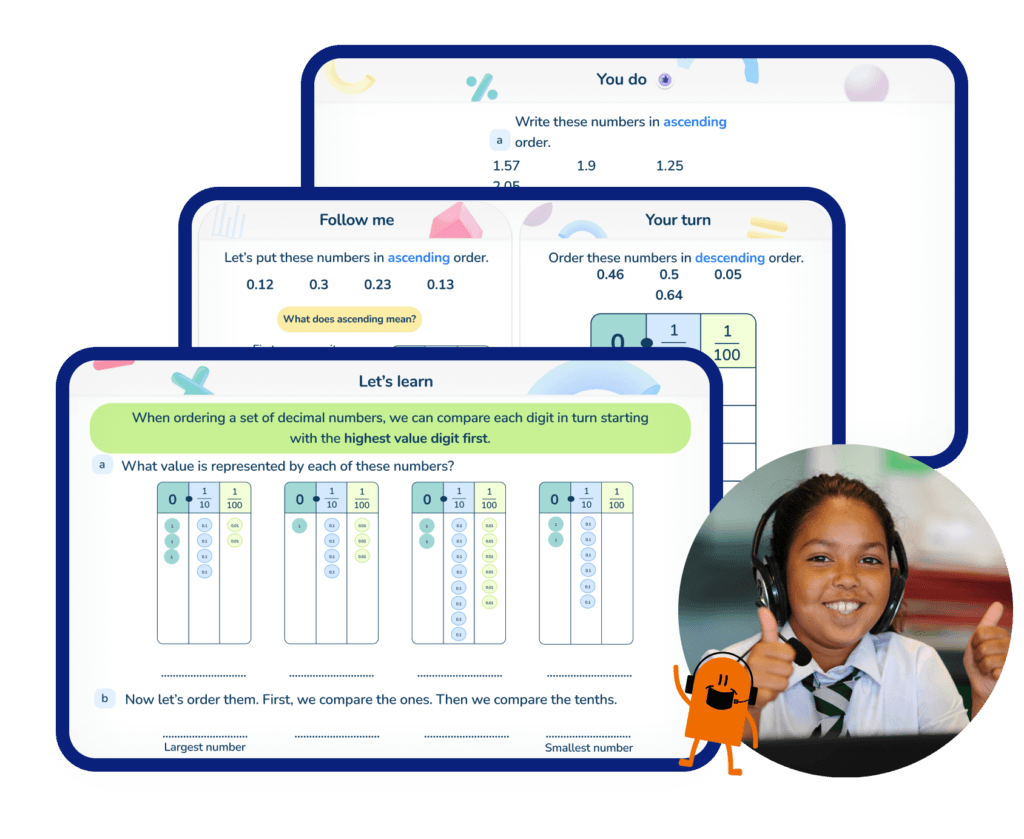
6. Create an essay plan
Essay plans are useful for retrieval in English and maths lessons. It encourages students to recall the key points for a topic or argument in a short space of time. By posing an essay question rather than a brain dump, students can evaluate information, and think critically and creatively.
7. Apps and clickers
There are many online apps and student response systems, called clickers, that enable whole-class participation in retrieval practice.
Feedback is instant and automatic, which means that teachers can also use these as formative feedback to adapt their lessons.
Teaching tips to incorporate retrieval practice into the classroom every day
- Use continuous professional development (CPD) sessions to share resources and best practices.
- Create templates for brain dumps and low-stakes quizzes: the more readily available the resources are, the more they will be used.
- When teaching a new topic, make a note to revisit it the following week, two weeks later, and one month later.
- On every homework, include a topic from two weeks ago and a topic from the previous term.
- Start every lesson with a low-stakes quiz or a question relating to a previous topic.
- Use interleaving as often as possible to revisit previous topics alongside new material.
- When doing assessments, include topics taught in the previous term and more recent topics.
- Teach students about the benefits of retrieval practice and how to use flashcards effectively.
Key takeaways
Retrieval practice strengthens memory pathways and supports long-term learning. The best way to incorporate it into daily lessons is to use subject-specific pedagogy.
Research conducted in schools and colleges supports this powerful teaching tool. The research consistently concludes that actively retrieving information significantly improves long-term learning.
Useful resources:
- Fluent in Five: daily retrieval practice questions for KS2
- Fluent in Five: daily retrieval practice questions for KS3 and GCSE
- Make it Stick podcasts
Retrieval practice FAQ
No FAQs available at the moment.
References
Agarwal, P.K., 2019. Retrieval practice & Bloom’s taxonomy: Do students need fact knowledge before higher order learning?. Journal of Educational Psychology, 111(2), p.189.
Agarwal, P.K., Nunes, L.D. and Blunt, J.R., 2021. Retrieval practice consistently benefits student learning: A systematic review of applied research in schools and classrooms. Educational Psychology Review, 33(4), pp.1409-1453.
Karpicke, J.D. and Blunt, J.R., 2011. Retrieval practice produces more learning than elaborative studying with concept mapping. Science, 331(6018), pp.772-775.
Karpicke, J.D. and Roediger III, H.L., 2007. Expanding retrieval practice promotes short-term retention, but equally spaced retrieval enhances long-term retention. Journal of experimental psychology: learning, memory, and cognition, 33(4), p.704.
DO YOU HAVE STUDENTS WHO NEED MORE SUPPORT IN MATHS?
Every week Third Space Learning’s specialist school tutors support thousands of students across hundreds of schools with weekly online 1 to 1 maths lessons designed to plug gaps and boost progress.
Since 2013 these personalised one to 1 lessons have helped over 150,000 primary and secondary students become more confident, able mathematicians.
Learn how tutors build rapport or request a personalised quote for your school to speak to us about your school’s needs and how we can help.

